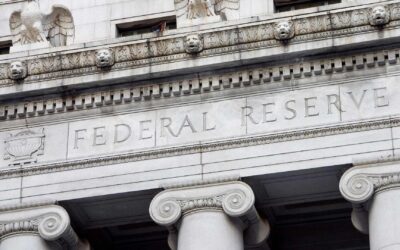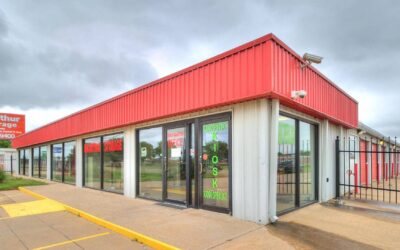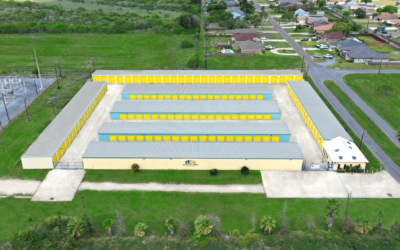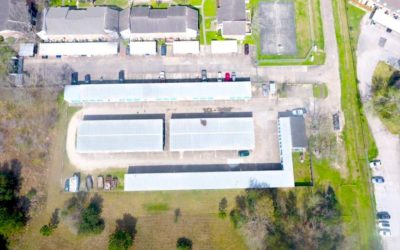Resources
The Debt Service Coverage Ratio
The Debt Service Coverage Ratio (DSCR) is a financial metric used to evaluate the ability of a borrower to meet their loan obligations. The ratio is a key component in commercial real estate transactions, as it is used by lenders to assess the financial health of a...
Investing During an Inflationary Period
Commercial real estate is an asset class that offers investors an opportunity to generate income and build wealth. However, investing in commercial real estate requires careful consideration, especially during inflationary periods. Inflation can have a significant...
Conservative Underwriting
Conservative underwriting is an essential aspect of commercial real estate development. It refers to the process of evaluating the risks associated with a real estate investment and determining the financial feasibility of the project. As a developer, it is essential...
Self Storage Due Diligence
Self-storage facilities have become increasingly popular in recent years. They offer individuals and businesses the convenience of storing their belongings in a secure and easily accessible location. However, as with any investment, there are risks associated with...
Understanding Commercial Leases
Commercial leases are agreements between landlords and tenants that allow businesses to occupy commercial properties for a specified period of time. There are several types of commercial leases, each with its own set of terms and conditions. In this paper, we will...
Asset Management what and why
Asset management is a crucial aspect of commercial real estate. It refers to the process of managing and optimizing the performance of a property, ensuring that it meets the investment objectives of the owner. The process involves monitoring the property's financial...
Pros and Cons of Medical Office Buildings
Medical office buildings (MOBs) have become a popular investment option in recent years due to the increasing demand for healthcare services. MOBs are specialized commercial real estate properties that are leased or sold to healthcare providers such as hospitals,...
Cost Segregation
When it comes to commercial real estate, one of the most crucial aspects of managing the asset is accounting for the costs associated with it. In particular, cost segregation is an accounting strategy that separates assets into various categories with different...
What is a 1031 exchange
A 1031 exchange is a tax-deferred exchange that allows real estate investors to defer the payment of capital gains taxes when they sell their investment property and use the proceeds to purchase another investment property of equal or greater value. This exchange is...
What is a PPM?
A commercial real estate syndication is an investment model where a group of investors pool their money together to purchase a property. In a syndication, the investors are referred to as limited partners, and the sponsor or general partner is responsible for managing...
Vetting a Syndicator
Commercial real estate syndications offer a lucrative opportunity for passive investors to participate in large-scale real estate projects without the hassle of managing them directly. However, investing in a syndication is not without its risks. One of the most...
Investing Into a Fund vs. Syndication
Investing in real estate has been a popular way to generate income and build wealth. Passive investors can participate in real estate investments through real estate funds or syndications. Both investment vehicles have their advantages and disadvantages, but...
Return on Equity
Return on equity (ROE) is a financial measure used to evaluate the profitability of an investment in real estate. It represents the percentage return that an investor can expect to earn on the money they have invested in a property. To calculate ROE in real estate,...
Aaron Hultgren interview with Bow Tie Capital
Tango Development Founder Aaron Hultgren had the chance to sit down with Brent Mott of Bow Tie Capital. They discussed everything from what Tango is working on, commercial real estate, and getting started as a real estate passive investor. https://vimeo.com/754445192...
Why Passively Investing Benefits You
Our main focus at Tango Development is to help busy individuals by presenting them with alternative cash-flowing real estate investments. We place these individuals in passive investments, which are less volatile than stocks and the opportunity for greater returns...
Why Invest in a Fund?
With asset diversification, you will own several assets, which helps with spreading out the investment risk rather than placing all your funds into one asset and relying solely on that asset’s success. If you invest your limited capital into one asset and that asset...
Passive Investing
Passive investing can be one of the best ways to gain an additional source of revenue, reach retirement goals, and help roadmap an individual’s financial freedom. What makes passive investing enticing to many, is the “hands off” approach to growing your bank account...
What is DSCR?
DSCR is (debt service coverage ratio) is the ratio of a property’s annual net operating income (NOI) to its annual mortgage debt service (principal and interest payments only). I describe is as for every dollar in debt we have a $1.25 to services that debt. ...


















